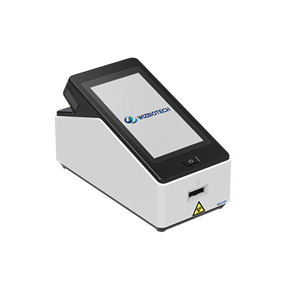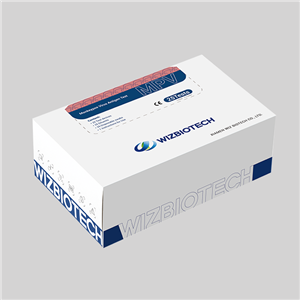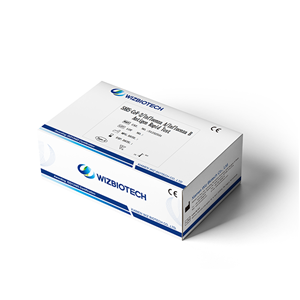-
Medlab Asia & Asia Health
Wizbiotech highlighted the WIZ-A101 convenient immunoanalyzer, infectious disease quadriplex and bowel cancer early screening solutions, which attracted a large number of international professional visitors and received good feedback and business negotiations.
12-07-2024 -
Application of calprotenin combined with fecal occult blood test in colorectal cancer screening
Colorectal cancer is one of the most common malignant tumors and its incidence is increasing year by year. Early detection of colorectal cancer is crucial for treatment and prognosis, so screening has become one of the important means to prevent colorectal cancer. At present, the commonly used colorectal cancer screening methods include colonoscopy, stool occult blood test and so on.
01-07-2024 -
Bowel cancer three-way test: Early screening saves lives
Colorectal cancer is one of the most common malignant tumors of the digestive system worldwide, and early diagnosis and treatment are essential to improve the survival rate of patients.
21-06-2024 -
Calprotenin detection: a new indicator of intestinal inflammation
Calprotenin is a calcium-zinc binding protein complex. It is found almost throughout the body, but is mainly found in white blood cells (also known as neutrophils), and is also expressed in monocytes and macrophages. In the case of inflammation of the gastrointestinal tract, white blood cells are drawn into the intestine and release the chemical mediators of inflammation and calprotenin in the intestine, thus increasing the concentration of calprotenin in the stool.
10-06-2024 -
Influencing factors of calvetin detection
Calprotenin is a calcium-binding protein of the S100 family, which is mainly derived from neutrophils, but is less present in monocytes and macrophages, accounting for about 60% of the cytoplasmic protein of neutrophils.
07-06-2024 -
How can fecal calprometheus be used in the management of IBD?
Fecal calprotectin is more sensitive and specific than systemic inflammatory markers, and is consistent with the degree of histological lesions. With these properties, it can be used as a biomarker indicating the degree of intestinal inflammation for the management and monitoring of inflammatory bowel disease (IBD).
05-06-2024




